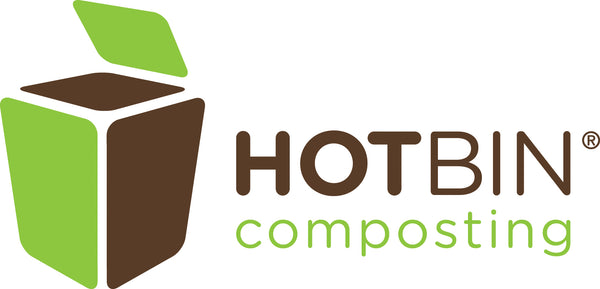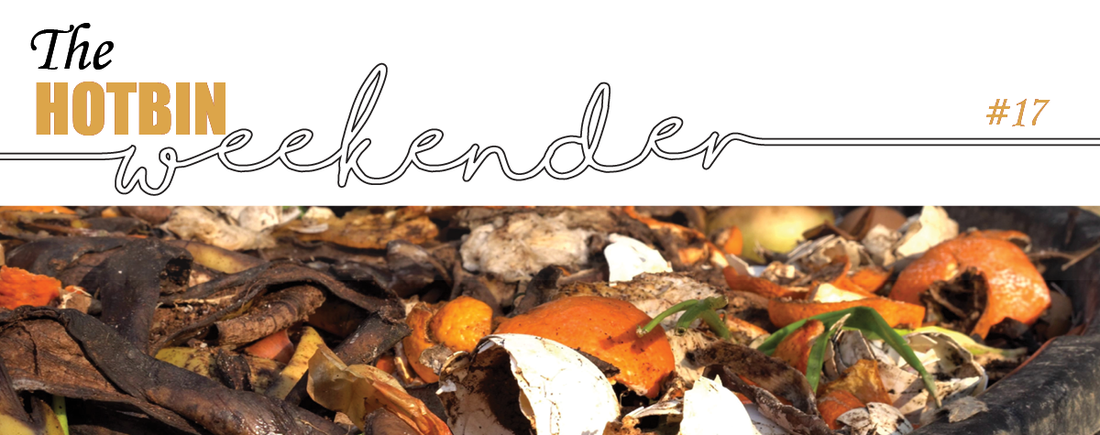Is your cold composter not watertight?
Having a composter that is not watertight may be a problem as rain can get the composting pile wet, cold and as a result, the waste will not be decomposed. Furthermore, small volumes of additional organic waste will not get hot or hold the necessary heat to properly be decomposed.
This is one of the advantages of having a hot composter bin that is watertight as HOTBIN. HOTBIN’s thick insulating walls will keep your composting pile hot even during the coldest winter days. You just must keep-up feed 2-3 times a week in quantities suggested on guide to maintain the HOTBIN steaming and decomposing the waste. HOTBIN produces rich-compost at 104-140°F in as little as 90 days.
What is an efficient use of compost?
Rich compost is a miracle and a multi-purposed material that can be used on every desirable plant. Raised beds can benefit from a high content of compost mixed with soil.
Regularly adding a small amount (3-6%) of compost to lawns’ soil will improve lawn quality and its resistance to disease. A quarter inch compost to dress lawn top yearly will be great.
Long-lived plants like trees and large shrubs should be planted in primarily mineral soil as you don’t want the roots to subside as the soil organic matter decomposes. However, these plants typically evolved to live in a leaf-litter environment with a high-organic surface layer and mineral soil beneath. They get nutrients by breaking down soil minerals or forming symbiotic relationships with fungi that collect nutrients. However, you can regularly add compost and wood mulch to their beds to replicate what nature does best.
Urban Communities Composting Services
As local governments implement bans on adding organic waste destined for landfills, Community Compost and Food Waste Reduction Projects are emerging to assist municipal governments with the tasks involved.
When it takes place at the community level, it’s a terrific strategy for unleashing the power of collaboration and civic engagement to move toward a zero-waste economy that puts people and planet first. Community composting is the not-so-radical if we believe that compost is used where it’s made, and the community participates in some way.
Community-scale composters serve an integral and unique role in both the broader composting industry and the sustainable food movement. They are often social innovators and entrepreneurs. Many collect food scraps with bikes, while others employ youth and marginalized individuals. A growing number utilize cooperative ownership structures.
Community composters are located at schools, universities, community gardens, farms, and many other places – urban, rural, and suburban. Their distinguishing feature is keeping the process and product as local as possible while engaging the community through participation and education.
If interested in starting a project on organic waste composting? Here are some tips for getting started.
- Take a training course to learn why and how to compost.
- Establish your goals (I.e., Non-profit community volunteers project; a for profit composting services business; etc.)
- Decide a location to operate and who to partner with
- Become an advocate for community composting
If interested of partnering with HOTBIN composting USA, send us an email to community@hotbincomposting.com.
Home composting avoid collection costs and…
Home composting aerobically avoids sending organic waste to landfill and the production of methane emissions due to anaerobic (buried waste) decomposition. Home composting can cut the amount of waste send to landfills by half, and eventually the price paid for its pick-up and disposal. Other reductions include pollution, and greenhouse gas emissions (incl. methane gas).
In addition to reducing greenhouse gas emission and waste collection costs, you can benefit from producing rich compost to use in your garden. Compost enriches soil by helping retain moisture. It increases the fertility of soil by adding humus and working as a natural waste disposal or closed-loop system. Furthermore, compost suppresses plant diseases, pests, and the need to use chemical fertilizers.
According to the Composting Council, if everyone in the United States composted all their food waste, the impact would be equivalent to removing 7.8 million cars from the road.
Don't miss HOTBIN Sale $25 OFF, through February 14th. Use discount code LOVE-2022 at checkout!

